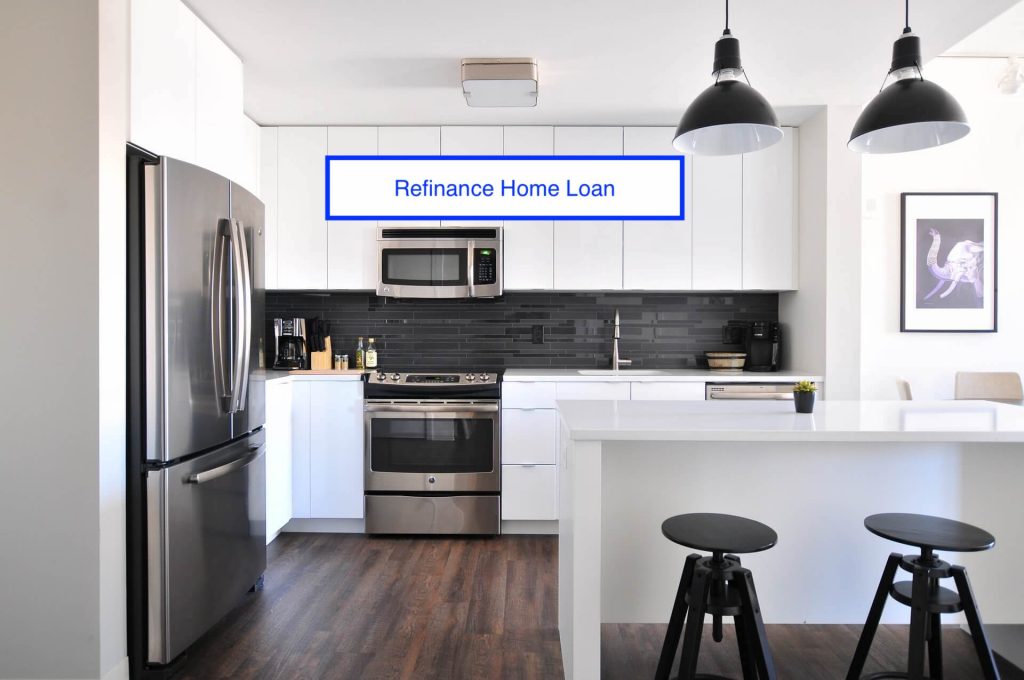Refinance decisions cannot be taken lightly and must have to be weighed against many different factors, both internal and external

By: Phoenix Lee/
Have interest rates fallen? Or do you expect them to go up? Has your credit score improved enough so that you might be eligible for a lower-rate mortgage? Would you like to switch into a different type of mortgage?
The answers to these questions will influence your refinance decision to your mortgage. But before deciding, you need to understand all that refinance decisions involves.
Table of Contents
Your home may be your most valuable financial asset, so you want to be careful when choosing a lender or mortgage broker and specific mortgage terms. Remember that, along with the potential benefits to refinancing, there are also costs.
When you refinance, you pay off your existing mortgage and create a new one. You may even decide to combine both a primary mortgage and a second mortgage into a new loan. Refinancing may remind you of what you went through in obtaining your original mortgage, since you may encounter many of the same procedures–and the same types of costs–the second time around.
The interest rate on your mortgage is tied directly to how much you pay on your mortgage each month–lower rates usually mean lower payments. You may be able to get a lower rate because of changes in the market conditions or because your credit score has improved. A lower interest rate also may allow you to build equity in your home more quickly.
Refinance Decisions Involve Adjusting the length of your mortgage
Increase the term of your mortgage: You may want a mortgage with a longer term to reduce the amount that you pay each month. However, this will also increase the length of time you will make mortgage payments and the total amount that you end up paying toward interest.
Decrease the term of your mortgage: Shorter-term mortgages–for example, a 15-year mortgage instead of a 30-year mortgage–generally have lower interest rates. Plus, you pay off your loan sooner, further reducing your total interest costs. The trade-off is that your monthly payments usually are higher because you are paying more of the principal each month.
Changing from an adjustable-rate mortgage to a fixed-rate mortgage when making refinance decisions
If you have an adjustable-rate mortgage, or ARM, your monthly payments will change as the interest rate changes. With this kind of mortgage, your payments could increase or decrease.
You may find yourself uncomfortable with the prospect that your mortgage payments could go up. In this case, you may want to consider switching to a fixed-rate mortgage to give yourself some peace of mind by having a steady interest rate and monthly payment. You also might prefer a fixed-rate mortgage if you think interest rates will be increasing in the future.
Getting a Floating Rate Mortgage with better terms – one of the many refinance decisions
If you currently have Floating rate mortgage, will the next interest rate adjustment increase your monthly payments substantially? You may choose to refinance to get another ARM with better terms. For example, the new loan may start out at a lower interest rate. Or the new loan may offer smaller interest rate adjustments or lower payment caps, which means that the interest rate cannot exceed a certain amount.
Getting cash out from the equity built up in your home
Home equity is the dollar-value difference between the balance you owe on your mortgage and the value of your property. When you refinance for an amount greater than what you owe on your home, you can receive the difference in a cash payment (this is called a cash-out refinancing). You might choose to do this, for example, if you need cash to make home improvements or pay for a child’s education.
Remember, though, that when you take out equity, you own less of your home. It will take time to build your equity back up. This means that if you need to sell your home, you will not put as much money in your pocket after the sale.
How long does it take to hear back about refinancing?
Upon a refinance home loan application, it usually takes 3 to 5 working days to know if your loan is approved or not. If you have not provided all the documents, it will take even longer. Once you accept the bank’s letter of offer, the complete process takes about 3 to 4 months to refinance to another bank as your new bank will need to serve notice to your current bank for switching.
Are you eligible to refinance?
Determining your eligibility for refinancing is similar to the approval process that you went through with your first mortgage. Your lender will consider your income and assets, credit score, other debts, the current value of the property, and the amount you want to borrow. If your credit score has improved, you may be able to get a loan at a lower rate. On the other hand, if your credit score is lower now than when you got your current mortgage, you may have to pay a higher interest rate on a new loan.
Lenders will look at the amount of the loan you request and the value of your home, determined from an appraisal. If the loan-to-value (LTV) ratio does not fall within their lending guidelines, they may not be willing to make a loan, or may offer you a loan with less-favorable terms than you already have.
If housing prices fall, your home may not be worth as much as you owe on the mortgage. Even if home prices stay the same, if you have a loan that includes negative amortization (when your monthly payment is less than the interest you owe, the unpaid interest is added to the amount you owe), you may owe more on your mortgage than you originally borrowed. If this is the case, it could be difficult for you to refinance.
What kind of Details you need in Refinancing calculators
Many online mortgage calculators are designed to calculate the effect of refinancing your mortgage. These calculators usually require information about your current mortgage (such as the remaining principal, interest rate, and years remaining on your mortgage), the new loan that you are considering (such as principal, interest rate, and term), and the upfront or closing costs that you will pay for the loan. Some may ask for your tax rate and the rate of interest you can get on investments (assuming you will invest your savings). Refinance calculators will show the amount you will save compared with the costs you will pay, so that you can determine whether the refinancing offer is right for you.






